#jim pillen for governor
Text
So, no one asks how or why I call our governor a pig farmer.
It's the truth. He owns Pillen Family Farms, a pig farming enterprise of 108 pig farms owned by him.
And he is polluting our water.
On top of that, he has the gall to refuse someone's critique of his operations by not even reading her work and attacking her for her heritage, not more than minutes after he claimed our state was the most accepting. Which begs me to ask - the most accepting of what, Jimmy?
The only reason he got into office is because Pete Ricketts guaranteed the seat for him and because he "rescued a fumble at a game".
3 notes
·
View notes
Text
The governor was firm: Nebraska would reject the new federal money for summer meals. The state already fed a small number of children when schools closed. He would not sign on to a program to provide all families that received free or cut-rate school meals with cards to buy groceries during the summer.
“I don’t believe in welfare,” the governor, Jim Pillen, a Republican, said in December.
A group of low-income youths, in a face-to-face meeting, urged him to reconsider. One told him she had eaten less when schools were out. Another criticized the meals at the existing feeding sites and held a crustless prepackaged sandwich to argue that electronic benefit cards from the new federal program would offer better food and more choice.
“Sometimes money isn’t the solution,” the governor replied.
.......
The new $2.5 billion program, known as Summer EBT, passed Congress with bipartisan support, and every Democratic governor will distribute the grocery cards this summer. But Republican governors are split, with 14 in, 13 out and no consensus on what constitutes conservative principle.
One red-state governor (Sarah Huckabee Sanders of Arkansas) hailed the cards as an answer to a disturbing problem. Another (Kim Reynolds of Iowa) warned that they might increase obesity. Some Republicans dismissed the program as obsolete pandemic aid. Some balked at the modest state matching costs. Others hinted they might join after taking more time to prepare.
The program will provide families about $40 a month for every child who receives free or reduced-price meals at school —$120 for the summer. The red-state refusals will keep aid from about 10 million children, about a third of those potentially eligible nationwide.
......
As with Medicaid, poor states are especially resistant, though the federal government bears most of the cost. Of the 10 states with the highest levels of children’s food insecurity, five rejected Summer EBT: Louisiana, Oklahoma, Mississippi, Alabama and Texas.
Like the school lunch program, it serves families up to 185 percent of the poverty line, meaning a family of three would qualify with an income of about $45,500 or less.
......
Some Republicans, in rejecting the aid, found critics in their own ranks. After Gov. Henry McMaster of South Carolina dismissed Summer EBT as a duplicative “entitlement,” State Senator Katrina Shealy, a fellow Republican, wrote a column with a Democratic colleague warning that “hunger does not stop during summer break.”
In an interview, Ms. Shealy said the state should not reject $65 million “just because Biden is president,” and perhaps just partly tongue-in-cheek wrapped her plea in Trumpian bunting: “Everyone wants to say, ‘America First’ — well, let’s feed our children first.”
Oklahoma initially said it rejected the program because federal officials had not finalized the rules. But responding to critics, Gov. Kevin Stitt, a Republican, sharpened his attack, calling Summer EBT a duplicative “Biden administration program” that would “cause more bureaucracy for families.”
Tribal governments, which have influence over large parts of the state, stepped in. Already feuding with Mr. Stitt, they promised to distribute cards to all eligible families on their land, regardless of tribal status, while bearing the $3 million administrative cost. The five participating tribes will cover nearly 40 percent of Oklahoma’s eligible children, most of them not Native American.
“I remain dumbfounded that the governor of Oklahoma would turn down federal tax dollars to help feed low-income children,” said Chuck Hoskin Jr., the principal chief of the Cherokee Nation.
-------------------------
some of the most stunning highlights of this story.
All I got to say is, let's feed the children? every single Democratic Governor took the money to feed the kids, every governor who rejected it, every single one, is a Republican. If you don't vote for Democrats you are STEALING food out of kids mouths.
2K notes
·
View notes
Note
Is there any way for you to coax Jim Pillen into fighting me? LIke, a fist fight, normal boxing rules, whoever wins becomes Governor of Nebraska?
what
229 notes
·
View notes
Text
But he and his Republikkkan cronies believe in corporate welfare. Of course Mr Pro-life would spend millions on an un-viable fetus.
Love the fetus, hate the child.
#republican assholes#corporate welfare#corporate greed#fuck republicans#starving children#child hunger#Republicans hate kids
138 notes
·
View notes
Text
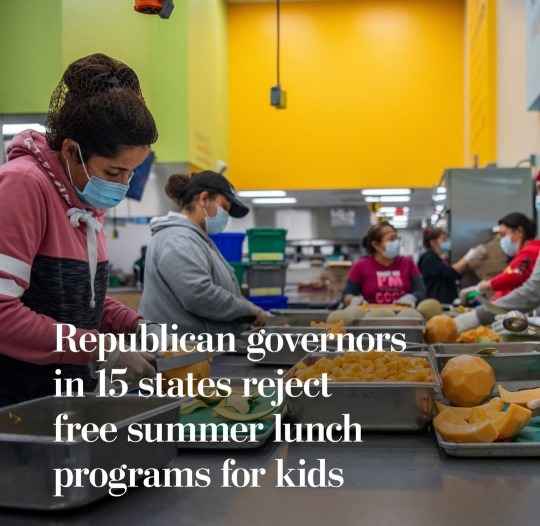
The program is expected to serve 21 million youngsters starting around June, providing $2.5 billion in relief across the country.
The governors have given varying reasons for refusing to take part. Iowa Gov. Kim Reynolds (R) said she saw no need to add money to a program that helps food-insecure youths “when childhood obesity has become an epidemic.” Nebraska Gov. Jim Pillen (R) said bluntly, “I don’t believe in welfare.”
Source
Source
Source
63 notes
·
View notes
Text
Racist RepubliKKKlan asshole. Their arrogance and ignorance knows no bounds.
#jim pillen#republican assholes#republican hypocrisy#Nebraska#republican racists#republican values#republican family values
88 notes
·
View notes
Text
The COVID pandemic provided a real-time experiment of a strengthened social safety net, in which several anti-poverty programs were bolstered and benefits increased. One such program, called Pandemic EBT, provided a voucher for families to purchase groceries while children were unable to attend school in person, helping them to obtain the nutrition they would otherwise get through free school meals and lifting millions of children out of hunger.
In late 2022, Congress approved a similar, permanent program on a bipartisan basis. Called SUN Bucks, or Summer EBT, the program begins this month and provides families with $40 per child per month in grocery benefits over the summer, or $120 in total, when they don’t have access to free lunches at school.
Thirty-seven states, five territories, and the District of Columbia will participate in the program. But 13 states, all led by Republican governors, have opted out of the program, depriving millions of low-income kids. Several of these states have also declined to expand Medicaid, increasing the burden on households too poor to afford health care or basic groceries.
SUN Bucks isn’t as generous as its pandemic-era iteration, but the Department of Agriculture nonetheless estimates that the program will reach more than 20 million children. “We always see summer as one of the hungriest times of year,” said Kelsey Boone, the senior child nutrition policy analyst at the Food Research and Action Center. “We see summer EBT as kind of filling that gap in the summer nutrition programs that only reach a fraction of the children that participate in reduced-price school meals during the school year.”
The baker’s dozen of red states that opted out are Alabama, Alaska, Florida, Georgia, Idaho, Iowa, Oklahoma, Mississippi, South Carolina, South Dakota, Texas, Utah, and Wyoming. Their governors have cited an array of reasons, including logistical difficulties, but much of the opposition appears patently ideological.
“An EBT card does nothing to promote nutrition at a time when childhood obesity has become an epidemic,” said Iowa Governor Kim Reynolds in December, referring to the debit-like card that food stamp recipients use to purchase groceries. A Florida state official told WFSU News that “we anticipate that our state’s full approach to serving children will continue to be successful this year without any additional federal programs that inherently always come with some federal strings attached.”
A spokesperson for Mississippi Governor Tate Reeves insisted that Summer EBT amounted to “attempts to expand the welfare state,” adding that if “Democrats in Washington had their way, Americans would still be locked down, subjected to Covid vaccine and mask mandates, and welfare rolls would’ve exploded.” (Nebraska Governor Jim Pillen, who initially said his state would not participate because he did not “believe in welfare,” reversed course in February after speaking to low-income children.)
Some governors cited the cost of Summer EBT as prohibitive; a spokesperson for South Dakota Governor Kristi Noem said in January that “federal money often comes with strings attached, and more of it is often not a good thing.” The federal government will cover the cost of the program, but states must provide the funds for half of the operational costs. Others argued that it is redundant, pointing to state summer meal programs. Oklahoma Governor Kevin Stitt rejected the $60 million in federal funding, saying he was “satisfied that kids won’t be going hungry in the summertime.” (He told KJRH News in January, “We gave over $20 million over the last couple of years to different food banks.”)
But Chris Bernard, the president and CEO of Hunger Free Oklahoma, noted that only 6% of eligible children in the state participate in summer meal programs. Moreover, he argued, the existing summer food programs administered by the state are insufficient on their own. “These programs are meant to complement each other, not be exclusive,” Bernard said.
Even though Stitt opted out of Summer EBT, several Native tribes in the state will be participating and will provide the benefits to Native and non-Native children living in tribal territories. As much of the state is composed of tribal lands, this means that a large portion of Oklahoma’s population of low-income children will be served. However, this will also result in piecemeal application of the benefits across the state. Children living in Oklahoma’s second-largest city, Tulsa, will be eligible to receive the benefits through the Muscogee Nation, but families in the state’s largest metropolitan area, Oklahoma City, will not be able to obtain Summer EBT.
“You could be in a school district that’s bordering one of these other territories but not in it, and you’re going to miss out. But even your sibling could attend the other school district, and they’ll get the benefit,” Bernard said. “It makes for confusion. It makes for an unnecessary absence of resources for families.”
Neighboring Texas, the second-largest state in the country, with 3.8 million children eligible for the program, also opted out of Summer EBT; however, the reasoning seemed more logistical than political. Texas’s Health and Human Services Commission argued that it was given insufficient time by the U.S. Department of Agriculture to get the program up and running. Moreover, the state is currently busy unenrolling people from Medicaid after the federal government removed its pandemic-era requirements for continuous coverage.
As a result, the charitable sector may bear much of the brunt of keeping low-income families fed over the summer. For example, the Houston Food Bank operates a summer meal program at around 200 sites in the Houston area, but it’s expensive to administer and reaches a relatively low percentage of children who need it.
“For years, we’ve argued that, yes, we’re happy to do this, but we do not think this is the best solution. The best solution is for those families just to be able to buy the food they need less expensively at supermarkets,” said Brian Greene, the organization’s president and CEO. He added that food banks are “not meeting the need to begin with,” so having to help even more families with children will further strain the charitable sector—not to mention low-income Texans themselves.
“We’ll keep doing as best we can, and it won’t be enough by a large margin. But it’s the families who are going to be taking the hit,” Greene said.
Still, even if a state doesn’t opt into Summer EBT this year, it does not preclude them from doing so in 2025. Stitt has not ruled out participating in the future, and states like Texas that dealt with administrative burdens may find those issues resolved in time for next year.
Something similar occurred with the Affordable Care Act’s Medicaid expansion, the cost of which is largely borne by the federal government. Many Democratic-led states adopted the expansion in 2014, while many red states refused it, even as research demonstrated the expansion’s health and fiscal benefits. Since 2019, six more Republican-led states have joined the club. Seven of the remaining 10 holdouts have also rejected SUN Bucks.
#us politics#news#the new republic#2024#republicans#conservatives#gop#Pandemic EBT#SUN Bucks#Summer EBT#welfare#medicaid#gov. Kim Reynolds#iowa#Mississippi#gov. Tate Reeves#gov. Jim Pillen#Nebraska#gov. Kristi Noem#south dakota#gov. Kevin Stitt#oklahoma#texas#gov. greg Abbott
14 notes
·
View notes
Text
Miss Lindsey had skipped town and went to Omaha to try to coerce  legislators to change the rules to help The Convicted Felon avoid prison.
6 notes
·
View notes
Text
Nebraska Governor DILFs
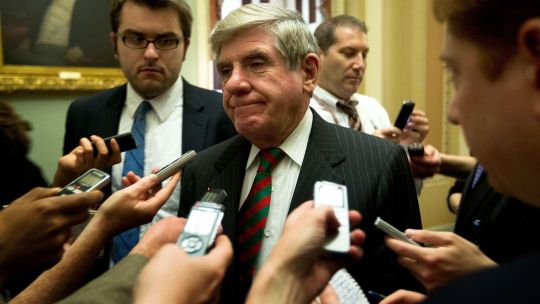









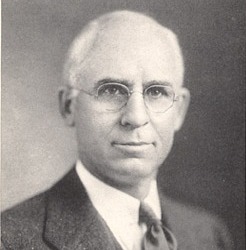
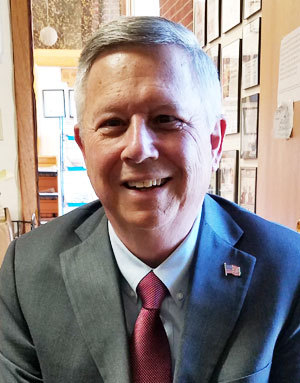



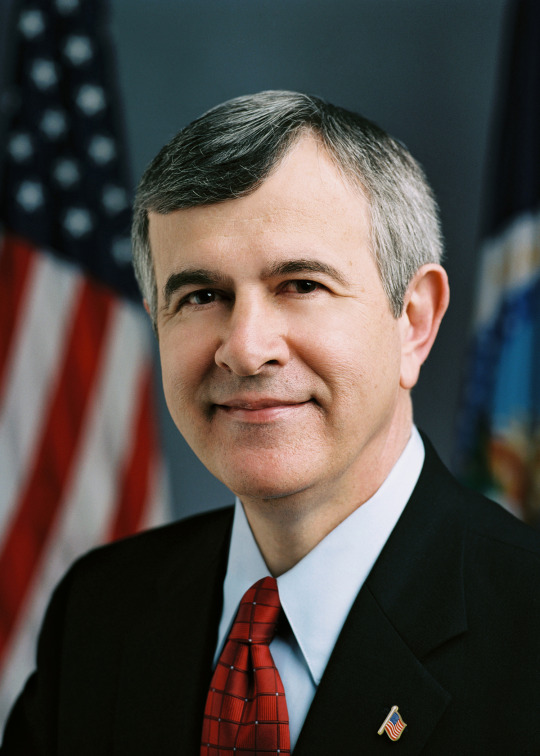

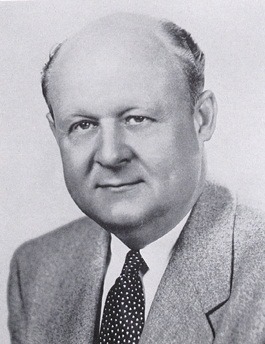
Ben Nelson, Bob Kerrey, Frank B. Morrison, Norbert Tiemann, Pete Ricketts, Arthur J. Weaver, Charles Thone, Charles W. Bryan, Dwight Griswold, J. James Exon, Robert Leroy Cochran, Dave Heineman, Dwight W. Burney, Jim Pillen, Victor Emanuel Anderson, Mike Johanns, Ralph G. Brooks, Val Peterson
#Ben Nelson#Bob Kerrey#Frank B. Morrison#Norbert Tiemann#Pete Ricketts#Arthur J. Weaver#Charles Thone#Charles W. Bryan#Dwight Griswold#J. James Exon#Robert Leroy Cochran#Dave Heineman#Dwight W. Burney#Jim Pillen#Victor Emanuel Anderson#Mike Johanns#Ralph G. Brooks#Val Peterson#GovernorDILFs
16 notes
·
View notes
Text
Nebraska governor reverses course and says state will take federal funding to feed children - ABC News
Good for those students to impress their hunger upon him. $40 is a pittance but better than nothing.
14 notes
·
View notes
Text
It didn't hit me until last week how our corrupt government has manufactured the illusion of choice. Pete Ricketts, the former governor who basically bought his way into office, is running for re-election as senator. He basically created the scandal that got his predecessor ousted from the house and his hand-picked governor successor, Jim Pillen, decided to send Scurvy Pete up the capitol. This is how power is gained. Not through voting; through bribery and political alliances.
So, Scurvy Pete's running for re-election. He spends about $5m clogging up the airwaves in Nebraska with promises to "oppose the Biden agenda at every turn" (direct quote), and it occurs to me that this is the platform that all the other republicans are running on too.
Then, I find out that Scurvy Pete is right at the forefront of the 1st-amendment-abolishing TikTok ban, and-- oh yeah, would you believe that Joe Fucking Biden is ALSO trying to slam this through to his desk where he'll sign it quicker than he's ever signed anything in his life! Duh! The republicans and the democrats are in LOCK STEP with each other! They don't need to do anything but perform for the camera anymore, because whatever political divisions there were back in 2020 just fucking evapourated in October.
The true colours of the United States government have been revealed for all to see and ignore. Regardless of party affiliation, American politicians are 100% behind arming Israel, exterminating Muslims, elevating private schools while defunding public ones, handing control of the internet over to revisionist christians, and finally quashing the people's ability to dissent.
Choice is an illusion.
8 notes
·
View notes
Text
Trudy Ring at The Advocate:
The Nebraska Supreme Court has upheld a state law banning most abortions after 12 weeks and restricting gender-affirming care for transgender people under 19.
Planned Parenthood of the Heartland and its medical director, Dr. Sarah Traxler, had sued over the law. They were represented by the American Civil Liberties Union, the ACLU of Nebraska, and Powers Law. They argued that the law, Legislative Bill 574, violates the Nebraska constitution, which stipulates that any piece of legislation should deal with one subject only.
Lancaster County District Court Judge Lori Maret dismissed their suit last August, and they appealed to the state Supreme Court. The high court ruled Friday that the law doesn’t violate the constitution because both of its subjects deal with health care.
Because the suit was filed at the state level, the Nebraska
Supreme Court’s ruling is the final word on it. Asked if there were plans to file a federal suit, ACLU of Nebraska Executive Director Mindy Rush-Chipman said in a Friday press conference that various options were under consideration.
The trans care restrictions had been subject to a filibuster led by Sen. Machaela Cavanaugh, who vowed to block every bill pending in Nebraska’s one-chamber, officially nonpartisan legislature in order to keep the anti-trans measure from passing. However, her fellow lawmakers eventually overcame that filibuster. The legislature folded the 12-week abortion ban into the anti-trans bill and passed the combined measure in May 2023. Republican Gov. Jim Pillen signed it into law within days. The abortion ban took effect immediately, and the trans care regulations went into effect October 1.
The anti-trans provisions ban surgery, both genital and nongenital, for the purpose of gender transition for anyone under 19. An earlier form of LB 574 would have banned puberty blockers and hormone treatment as well as surgery. Genital surgeries are almost never performed on minors. However, the legislation gave the state’s chief medical officer, appointed by the governor, the power to regulate use of puberty blockers and hormones.
Under Nebraska Chief Medical Officer Timothy Tesmer's regulations, patients under the age of 19 are required to undergo 40 “gender-identity-focused contact hours of therapy” before receiving puberty blockers or hormone therapy. These counseling sessions are supposedly meant to "be clinically objective and non-biased," but are explicitly required to “not merely affirm the patient’s beliefs.” Patients have to undergo further counseling while receiving the treatment.
The Nebraska Supreme Court upholds the state’s ban on gender-affirming care and 12-week abortion ban in Planned Parenthood Of The Heartland v. Hilgers.
#Nebraska Supreme Court#Nebraska#Abortion#Gender Affirming Healthcare#Anti Abortion Extremism#Abortion Bans#Transgender#Nebraska LB574#Planned Parenthood Of The Heartland v. Hilgers
5 notes
·
View notes
Text
Jim Pillen, Nebraska Governor (Republican), is refusing to sign the law giving low-income families an extra $40/month per kid this summer... kids who would otherwise go hungry without things like school lunches... because "I don't believe in welfare."
Completely unrelated, his businesses received $7.8 million in PPP loans.
It would be a real shame if his phone line was flooded with calls reminding him and his office of that fact before the Jan 1 deadline to sign it.
Phone: 402-471-2244
Fax: 402-471-6031
9 notes
·
View notes
Text
The article fails to mention he is a RepubliKKKlan.
29 notes
·
View notes
Text
6 notes
·
View notes
Text
I hate him so much and I'll never forgive the cunts who voted him into office, fucking scumbag.
2 notes
·
View notes